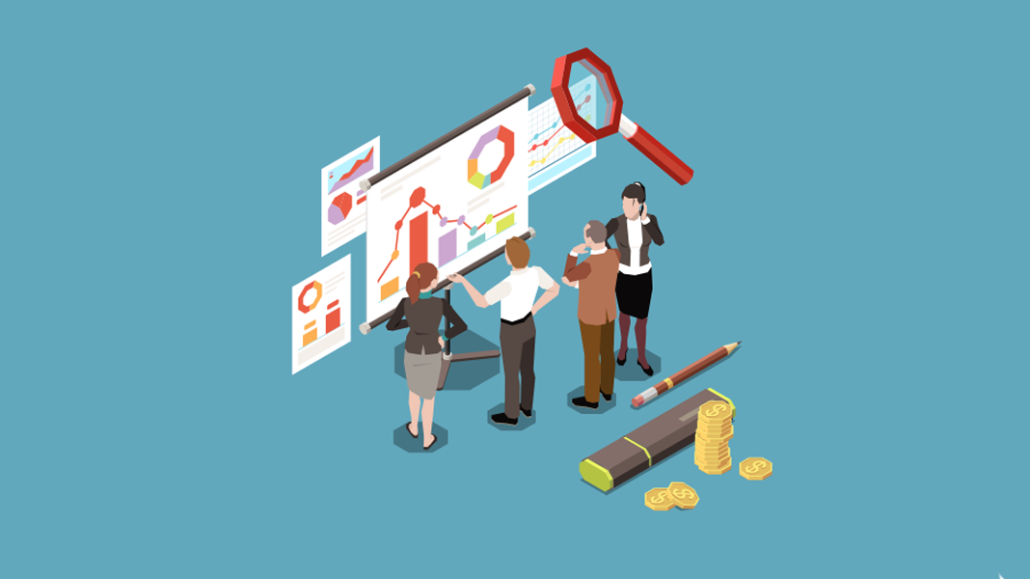Secure your place at the Digiday Media Buying Summit in Nashville, March 2-4

As marketers enter the second half of 2020, the coronavirus’s impact on digital advertising continues to perpetuate uncertainty and financial strain for advertising technology players and publishers alike.
Following an initial round of broad-reaching media and ad tech layoffs, furloughs and pay reductions that affected thousands of employees, the past quarter hinted at returns to stability — advertisers began to spend modestly again, and CPMs crept upward.
Over the past days and weeks, however, it’s become apparent just how precarious a financial situation many organizations are in as industry notables like Vox, the Guardian and the BBC announced cuts, serving as a sobering reminder that there’s still no definitive end in sight to COVID-19’s impact.
Sobering reminders aside, not all trends have been negative. Some publishers, such as those in the news, food and parenting verticals, have benefitted organically from increased traffic and engagement as a result of quarantine and adaptation to work-from-home life, while others have smartly curated content tailored to info-seekers in these changing times.
Yet there is a looming threat to even the most successful publishers: financial exposure to high-risk channel partners and sequential liability.
Sequential liability could ride the second wave
The underlying idea of sequential liability is straightforward: the company paying a publisher for advertising inventory can delay the funds until they get paid first. The complication, though, is that the programmatic chain is populated by middle players, and middle players sometimes end up with the money, not the publishers at the chain’s end.
Initially designed to protect agencies from the risk of advertiser non-payment, in today’s programmatic ad ecosystem sequential liability has expanded to apply to DSPs and SSPs, ultimately leaving publishers at risk of nonpayment should upstream partners fail. This is exactly what occurred last year when first Sizmek, and later Netmining, went belly up and clawed back millions in owed revenue to partners and publishers.
With ad tech companies operating on razor-thin margins already squeezed to the brink, a second wave of coronavirus could set off a devastating chain reaction of sequential liability. Notably, a number of tech companies, including several DSPs, SSPs and ad management firms, recently received Paycheck Protection Program loans; some following prior announcements of headcount reductions, further indicating signs of financial strain.
Ensuring publisher payment requires proactive steps
Buy-side credit risk poses a top liability for publishers. Yet publishers lack visibility into their upstream risk exposure and must take proactive measures to understand where their demand is coming from — and, better yet, whether their direct partners ensure payment.
Questions publishers should ask their programmatic partners or ad management providers to protect themselves from clawbacks and lost revenue include:
1. Which DSPs contribute to demand and how much ad revenue flows through each of them?
2. What happens if one of those DSPs, or another upstream partner, fails?
3. What protections are in place to ensure the publisher will be paid for all revenue booked?
4. Will each of the publisher’s partners contractually guarantee payments and agree never to clawback revenue, regardless of whether their channel partners pay?
5. Do the publisher’s partners offer any form of insurance policy against sequential liability and, if so, what is the cost to the publisher? Is the publisher already paying for this insurance via withholdings or other revenue adjustments without realizing it?
Publishers should take a partner’s unwillingness or inability to address these questions directly as a sign their revenue is at risk.
Even if that direct partner is financially stable, a failure from a partner one or two steps up the chain could result in nonpayment being passed on to the publisher via sequential liability. It’s up to the publisher to then consider what is financially at stake and whether continuing with that relationship is worth the risk. That’s a level of caution recommended for all times and circumstances, especially now as the industry navigates the continued impacts of COVID-19.
More from Digiday

From feeds to streets: How mega influencer Haley Baylee is diversifying beyond platform algorithms
Kalil is partnering with LinkNYC to take her social media content into the real world and the streets of NYC.

‘A brand trip’: How the creator economy showed up at this year’s Super Bowl
Super Bowl 2026 had more on-the-ground brand activations and creator participation than ever, showcasing how it’s become a massive IRL moment for the creator economy.

Future of Marketing Briefing: AI’s branding problem is why marketers keep it off the label
The reputational downside is clearer than the branding upside, which makes discretion the safer strategy.





